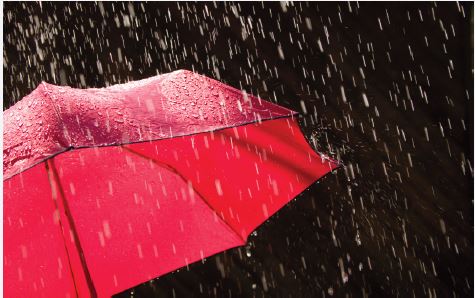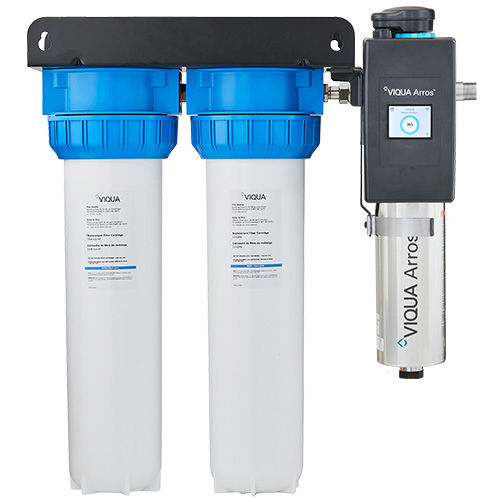For the homeowner, rainwater harvesting can mean many things.
At its simplest, rainwater harvesting is the collection of rain in a barrel for watering plants, or it can extend to the development of a fully independent home water supply. Interestingly, rainwater harvesting is a practice that starts small, but once engaged, homeowners and businesses are inclined to leverage further and further.
The outbreaks of waterborne illnesses, boil water advisories, and water infrastructure issues, safe water is top of mind – and so it should be. Contaminants can infiltrate wells and aquifers, and aging infrastructure can lead to increased risk of contamination. In fact, boil water advisories are becoming more and more common, even in large cities.
So, when planning your rainwater system, it’s smart to think ahead for what your goals might be down the road – considering not just your current needs, but also in the future. Whether you’re a homeowner looking for a reliable system or a water treatment professional advising your customers, planning with long-term goals in mind ensures efficiency and sustainability.
What can you do?
Start collecting rainwater!
Rainwater harvesting offers a secure source of water, free of the chemicals found in municipal water and contaminants that can taint wells as a result of seasonal run-off, fracking, and mining. As a homeowner, it allows you to take control of your water and ensure your family is safe from potentially contaminated water.
As a water treatment professional, you can educate your customers on effective use of rainwater harvesting systems and the best treatment solutions.
What’s involved in harvesting rainwater?
Collecting rainwater is an essentially simple process that involves three steps:
- Collection
Determine the collection surface for the rainwater (usually a roof) and how to best channel that water into the catchment container.
- Storage
The size and type of catchment container will depend on several factors, including how much water you expect to collect and its end usage.
- Treatment
While rain water is a relatively pure form of water, it still absorbs debris and biological contaminants from the atmosphere and collection surface, be it a roof, parking lot, etc. As a result, you need a filtration system to remove debris (leaves, dirt) and treat taste and odor issues.
There are multiple options to treat rainwater for microorganisms, but not all water treatment technologies are created equal. A popular, simple option is ultraviolet (UV) light.
Why treat rainwater with UV?
 All rainwater used indoors should have some level of treatment, regardless of whether the intended use is laundry, flushing toilets, or drinking.
All rainwater used indoors should have some level of treatment, regardless of whether the intended use is laundry, flushing toilets, or drinking.
Treating for biological contaminants is recommended, and one of the easiest ways to do so is to treat it with ultraviolet light.
How it works
UV water treatment is a reliable and economical way to treat water. Even chlorine-resistant microorganisms are inactivated and rendered harmless through UV exposure. VIQUA’s UV systems install easily into existing water lines and provide treated water to every tap in the house.
Water is treated as it runs through a stainless steel chamber containing a UV lamp. As water flows past the lamp, potentially illness-causing microorganisms receive a high dose of UV light that attacks their DNA and alters their ability to reproduce.
Selecting a quality UV system
Choose a UV system from a reputable manufacturer known for high-quality, reliable products like VIQUA. While UV systems require minimal maintenance beyond replacing the UV lamp, it’s essential to ensure that replacement parts are always available on demand. Always use genuine replacement parts to keep your system operating at the same high standards. Check out UV systems that have been certified by an accredited testing organization, like NSF International and the USEPA.
Easy maintenance
Rainwater doesn’t contain any of the minerals (iron, magnesium, calcium, etc.) present in most ground water and is considered “soft” water. Water devoid of these minerals is ideal for UV treatment as the softness reduces maintenance of the UV system. Changing the lamp annually should be the only maintenance required.
Why choose VIQUA UV?
VIQUA is proud to be one of the world’s leading suppliers of residential and light commercial UV water treatment systems, providing treated water without the use of chemicals. From single tap and whole home to rainwater catchment and light commercial, there’s a VIQUA UV system that delivers consistently better water for whatever situation you’re in—whether you’re a homeowner or a water treatment professional looking to provide reliable water solutions to your customers.
Find More information about our products – Click Here
Become a VIQUA Partner* – Grow your Business
VIQUA is committed to helping you sell UV successfully, so you can better serve your customers and grow your business. Contact Us to know more details
*Subject to approval process for those who meet the criteria

